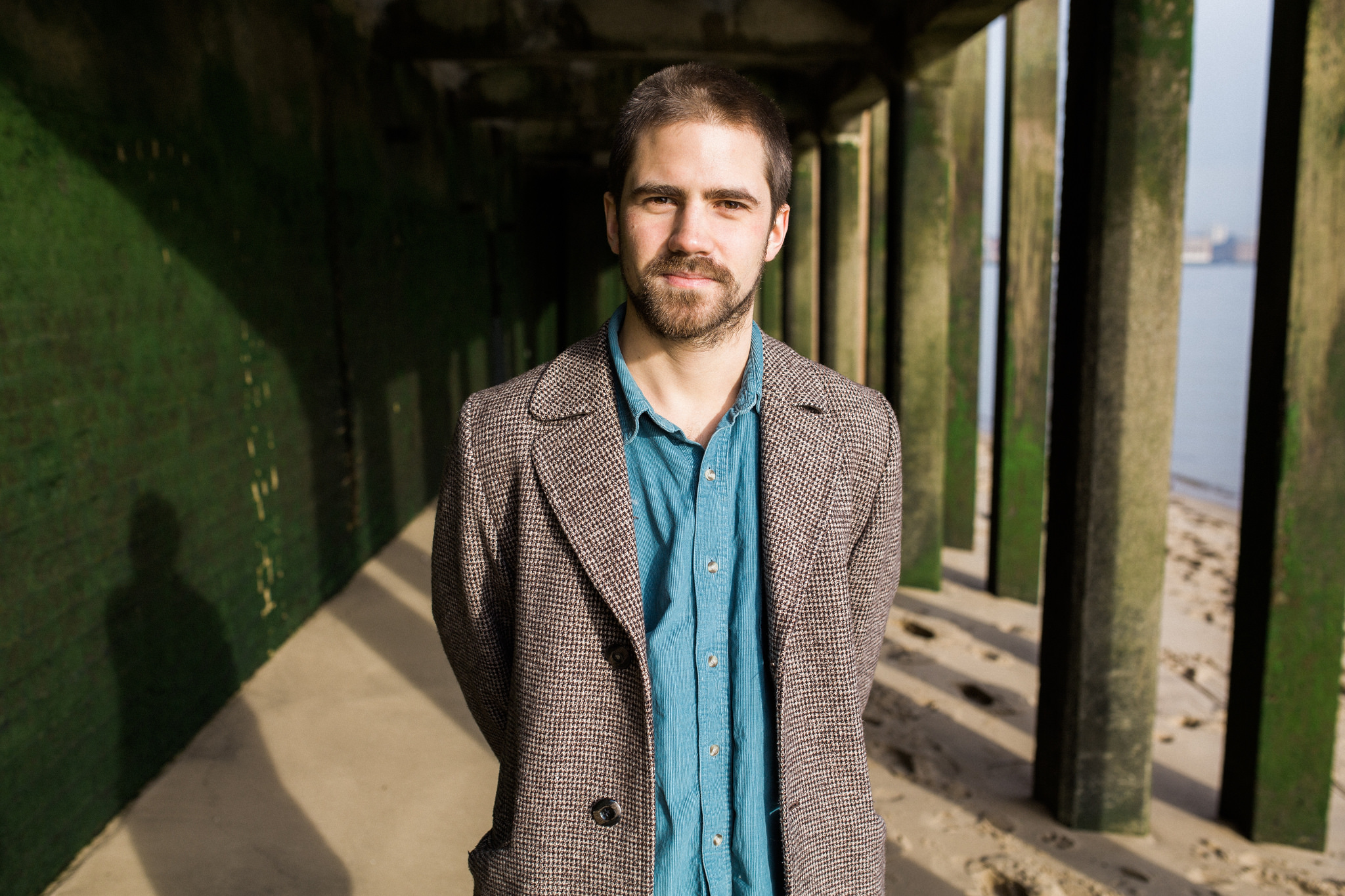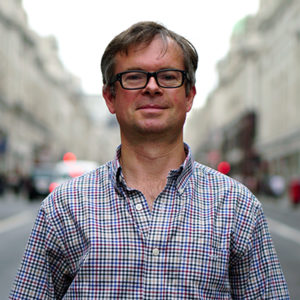Kit Downes Interview

Tell us about your group ENEMY.
“It’s a trio of myself, Petter Eldh and James Maddren where me and Petter write the music. The music is all quite rhythmic, quite intense. It’s about creating quite difficult forms but still trying to be free on them. Petter uses a lot of hip hop influences and subdivides the beat in a way that the beat feels lopsided but it’s actually kind of worked out. Playing with the rhythms is the main thrust of the music. The reason it came about is I heard Petter playing with Django Bates’ trio about five years ago and decided I wanted to have some musical interplay and I got James to play drums because I’ve played with him since I was at college, about ten years ago. And I guess the reason for the name is that it’s quite aggressive, not mean-spirited but very forthright. The nature of it being quite difficult music means that people have to take quite strong decisions in the band which don’t always match up but that can create interesting tensions. There are different ways of creating tension, whether that’s through written material or through band dynamics and things like that.”
So you’re making a new album?
“We’ve recorded a new album. It’s going to be released next April on Edition records. We did that back in October last year.”
Did it all go well? Was it what you hoped it would be?
“Yeah. We’re doing quite a lot of post-production on it, because Petter does quite a bit of that and we’re having a few guests on it, adding some sounds and mixing things in quite a lot of detail, which is nice but that stuff takes time. But also we all have other albums coming out in the interim so we have to wait a bit.”
Are you also recording a second album with Tom Challenger?
“We did one last year called Vyamanikal which came out on Slip. I’ve recently recorded a solo organ album so that’s kind of put things with Tom on hold, for a year, but we’re still gigging. We’re working on some new music with a singer called Ingebjørg Loe Bjørnstad who is about to come and make a record with us. That’s the next thing that we’re doing. She’s from Norway and a great singer who uses lots of weird and wonderful extended vocal techniques. So that’s the next project with Tom on the horizon which will be next year.”
You started off in the original line up of Empirical. And now you’ve recently done a duo album with Empirical’s vibraphonist Lewis Wright.
“That’s right. It’s all Lewis’s music so it’s his baby, so to speak, but Lewis wasn’t in the original line up, Lewis actually took over from me when I left, almost 8 years ago now. Me and Lewis are actually from the same part of the world, from Norfolk. He grew up in the village next to me. We only found that out when we were 13 when we joined the local big band. So we’ve known each other for a really long time, and played on and off together in that period.
He’d written a whole load of duet music that he wanted to record. It’s very cool music, very rhythmic. I don’t know when that’s coming out, but hopefully soon.”
Are there any other projects that you’re working on at the moment?
“I’m working with a fiddle player called Aidan O’Rourke, who is from the band Lau. He’s setting 365 short stories to music by the writer James Robertson. Aider has written a response to each one of the short stories. We’re doing that for festivals and stuff like that. And that’s with me playing harmonium and him playing fiddle.”
“I’m working with a folk singer called Josienne Clarke. And also Julian Arguelles.”
“I’ve actually just stopped doing quite a lot of things this year. Last year I was doing Squarepusher’s band, Thomas Strønen’s band. But I’ve stopped a lot to try and focus on my own music a little bit more. So it’s actually quieter than it was, which is quite nice. Although I’ve actually just got an injury, which is a bit of a drag. I just pulled the tendon in my finger. I can’t play with my left hand. For the gig in Brighton, I’ve adapted all the music for just my right hand which is quite a task because it’s quite notey. In response to that I’m trying to write a piece for right hand every day and put it up online, just to stop me going insane.”
Tell us how you go about writing a piece of music. Do you just sit down at the piano and see what happens or do you find inspiration around you. How does it usually work?
“I treat composing as like a practice so I do it every day. It might not be a whole piece every day, but I’ll always have something done most days. And I don’t really worry about what I’m writing it for, I just continue to write things, either at the piano, the cello or the guitar. And then once I’ve chipped away at it and worked a bit on it then it usually tells me what it wants to be played by and which band.”
“It’s not a very mysterious process. The way I think about composition is there’s 1 or 2% of the importance of composition is that original idea (that sort of eureka moment, the romantic idea of coming up with music). The other 98% behind it is refining that idea and that’s the thing that takes quite a long time and actually makes sense of that idea and developed it into a full piece of music rather than a single idea. The example that I use when I’m teaching is [sings the opening motif of Beethoven’s Fifth Symphony]. You don’t just hear that on its own, it goes on for about another 20 minutes so that original idea pales into insignificance, to the amount of chipping away that’s required. I think what I’m getting round to saying is that composition can be a very slow process, it doesn’t necessarily need to be fast in that inspiration lightning bolt kind of way. So with that in mind I just treat it as a constant thing that I do every day and then worry about how it fits into my output afterwards.”
As a performer, is there anything that you’re still working on, something that you’d like to achieve in terms of your own playing ability?
“Oh, always, definitely. I don’t think anyone can say that they’ve fully arrived at what they want to be doing. What am I working on at the moment? I’ve just been doing a solo organ album so I’m just basically trying to be a better organist, because it’s quite a tough instrument. And learning how to write for it as well. It’s very different to writing for the piano. But I’ve just come through that so I feel that I’ve learnt quite a lot of stuff, off the back of that. At the moment I can only play with my right hand so all the studies that I’m writing are all about counterpoint with one hand so I’m trying to write pieces that have two lines simultaneously or three lines on top of each other and be able to voice them out and give each line its own sound even though it’s all played with the same hand (which I used to study by playing Bach suites and things like that but it’s nice to write your own exercises for it).”
“Compositionally I’m trying to refine my craft a little bit and rely less on very obvious big gestures, I guess, but finding ways to frame minutiae which is still engaging for an audience.”
What plans do you have for the future?
“I don’t plan very far into the future. But I guess it’s trying to keep the three main things that I do (which is ENEMY, my work with Tom, and my solo work) sauntering on in their own direction and keep writing new music for them. I don’t really have a hit list that I’m trying to accomplish. Me and Tom might be making a record with [Norwegian guitarist] Stian Westerhus which would be nice to write some music for that. And I’ve started composing for classical commissions so a bit more of doing that would be nice. At the moment it’s just trying to get my left hand to heal.”
Kit Downes performs with ENEMY at The Verdict on Monday 22nd May.
Interview conducted by Charlie Anderson. Photo by Alex Bonney.



